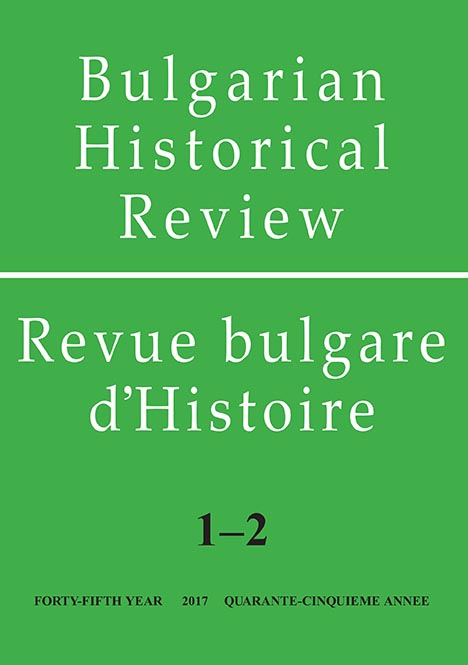Power and Society in Pleven on the Verge of Two Epochs: the Fate of the Mihaloğlu Family and its Pious Foundations (vakf) during the Transitional Period from Imperial to National Governance
Power and Society in Pleven on the Verge of Two Epochs: the Fate of the Mihaloğlu Family and its Pious Foundations (vakf) during the Transitional Period from Imperial to National Governance
Author(s): Maria KiprovskaSubject(s): History, Cultural history, Diplomatic history, Local History / Microhistory, Political history, Social history, Modern Age, Special Historiographies:, 19th Century, Period(s) of Nation Building, The Ottoman Empire
Published by: Институт за исторически изследвания - Българска академия на науките
Keywords: Bulgaria; Ottoman Empire; vakf; state-building; 19th century; 20th century;
Summary/Abstract: The end of the Russo-Turkish War of 1877–1878 and the subsequent decisions taken at the Berlin Congress of 1878 set the beginning of the state-building process of modern Bulgaria. The newly established nation-state quite naturally and purposefully sought an immediate emancipation from its political past and radical breaking with the inherited Ottoman institutions. This particular goal found direct reverberation in the consequent “de-Ottomanization” of Bulgaria during the process of homogenization of the Bulgarian nation. The Ottoman pious foundations (vakf) and their vast possessions, whose incomes provided for the maintenance and the functioning of the religious and other buildings, regarded by some as a direct implementation of the Ottoman imperial past, fall at the center of the state-building policies of the new Bulgarian state. The article examines one such particular charitable foundation, namely the vast vakf of the Mihaloğlu family in the region of Pleven, during the years after the establishment of the independent Bulgarian state and argues that it could be considered as an emblematic case elucidating aspects of the state-building ideology in the Bulgarian national politics in general and the uneasy process of decisive rupture with the imperial heritage that the new nation-state had to walk through in particular.
Journal: Bulgarian Historical Review / Revue Bulgare d'Histoire
- Issue Year: 2017
- Issue No: 1-2
- Page Range: 172-204
- Page Count: 33
- Language: English
- Content File-PDF

